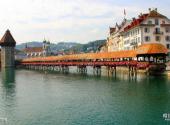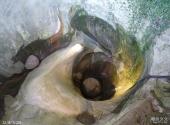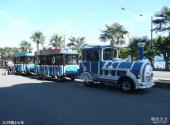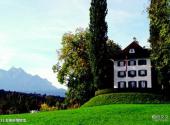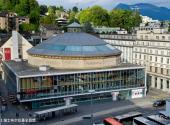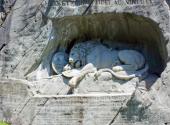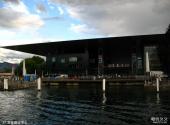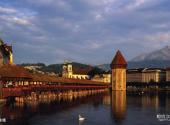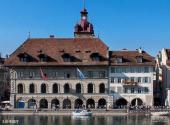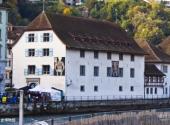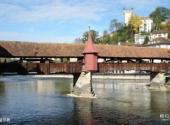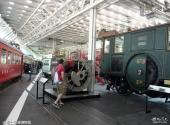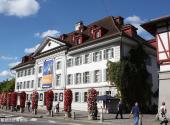
Scenic spot introduction:
Lucerne (also translated as "Lucerne") is a famous tourist city in central Switzerland. The ancient city is located on the Swiss Central Plateau, northwest of Lake Lucerne, and southwest of Zurich. The Reuss River runs through the city, full of medieval elegance. There is no shortage of Renaissance and Baroque buildings and fountains in the city. The square streets are paved with cobblestones, and the herringbone cottages are painted in bright colors. Surrounding the city are quiet lakes and majestic snow-capped mountains, which gather the most representative scenery of Switzerland's lakes and mountains, making it one of the most representative tourist resorts in Switzerland.Attractions distribution:
The ancient city of Lucerne was first documented in 840 AD. At that time, it was called "Lucialia". Legend has it that angels used light to guide people to build a chapel here, so Lucerne was called the "City of Flashing Lights". Lucerne was founded in 1178 and joined the Swiss Confederation in 1332. It has been the capital of the Swiss Confederation since the 18th century. It is an important transportation hub connecting Central and Southern Europe and an important trade center between the Rhine and Lombardy.Lake Lucerne has a special significance in Swiss history: it is said that William Tell, the founding father of Switzerland, was born here and fought against tyranny and seized freedom in this area; the first three cantons of Switzerland, Uri, Schwyz and Unterwalden, were located in this lake area and united in 1291 to break away from the rule of the Babenberg family and declare independence; in 1332, Lucerne joined the Union as the first city-state, which gave the young Union a strong backing; so the Lake Lucerne area is the birthplace of the Swiss Confederation, which may also explain why Lake Lucerne is also called the Lake of the Four Forest Cantons. In order to commemorate the 700th anniversary of the founding of Switzerland, a hiking route was set up on the shore of Lake Lucerne, which is called the Swiss Way.
Scenic spot features:
Museums, landscape tours, ancient buildings, city sightseeing, Western architecture, former residences of celebritiesTravel Notes of Travellers:
- Travel Guide: 12-Day European Tour Guide for Four Countries 2017
- Traveling Alone: 15 Days in Europe (Part 3) Germany and Switzerland
travelling guideline:
The city of Lucerne is very small, and a 1.5-day itinerary is recommended: 1 day for boating and mountain climbing, and half a day for strolling in the city.
European Rail Pass holders can take trains and cruises in Switzerland directly.
Best time to visit:
You can ski in Lucerne in winter and hike in the mountains and cruise around the lake in summer.
Scenic spot location:
Europe > Switzerland > Zurich
How to get there:
Zurich-Lucerne: 50 minutes by train; distance 60.5 km/; 46.7 minutes by car
Bern-Lucerne: 1 hour and 55 minutes by train; 89.5 kilometers; 81.3 minutes by car
Interlaken-Lucerne: 2 hours and 15 minutes by train; distance: 75 kilometers; 72.4 minutes by car
Lausanne-Lucerne: 2 hours and 40 minutes by train; 205.6 kilometers; 128.4 minutes by car
Scenic area map:
3D real scene of scenic spot
Lucerne ticket prices:
Glacier Park: Adults 12 Swiss francs;
Swiss Museum of Transport : Adults 24 Swiss francs, students 19 Swiss francs, children 12 Swiss francs;
Bourbaki Panorama: Adults CHF 8, Children aged 6-16 CHF 5.
Wagner Memorial: Adults CHF 6, children CHF 3.
Picasso Museum : Adults 6 Swiss francs, students 3 Swiss francs.
City Art Museum: 10-14 Swiss francs, students 4-6 Swiss francs, children under 6 years old free.
Natural History Museum: CHF 6
History Museum : CHF 10, CHF 8 for students.
Scenic area opening hours:
Musegg Wall: Easter to November 1st 8:00-19:00
Lucerne Entertainment Center : 12:00 noon-4:00 am every day, minimum admission age: 20 years old (show valid ID at the entrance)
Glacier Heritage Park: April 1 to October 31, 9:00-18:00; November 1 to March 31, 10:00-17:00
Bourbaki Panorama: 9:00-18:00;
Swiss Museum of Transport : Summer 10:00-18:00 Winter 10:00-17:00
Picasso Museum : April to October, 10:00-18:00; November to March, 11:00-17:00
Wagner Museum : Tuesday to Sunday, 10:00-12:00, 14:00-17:00, closed on Mondays and from December to mid-March
History Museum : Tuesday to Sunday, 10:00-17:00, closed on Monday
City Art Museum: Tuesday-Sunday: 10:00-17:00 (until 20:00 on Wednesday), closed on Monday, February 25-27, March 3, November 24-December 5.
Natural History Museum: Tuesday-Sunday, 10:00-17:00, closed on Monday

